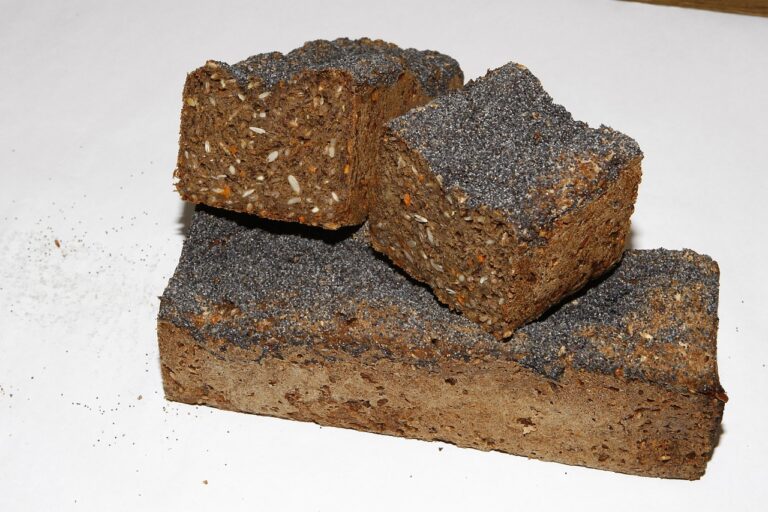The Intersection of Food and Mental Health: Exploring the Gut-Brain Connection
Over the years, research has increasingly highlighted the significant impact of diet on mental health. The nutrients we consume play a crucial role in the functioning of our brain and overall well-being. Foods rich in antioxidants, omega-3 fatty acids, and vitamins have been found to support cognitive function and mood regulation. Conversely, diets high in processed foods, sugar, and unhealthy fats have been linked to an increased risk of mental health disorders such as depression and anxiety.
Moreover, the gut-brain axis, a complex communication network between the gut and the brain, has garnered attention for its role in influencing mental health. The gut microbiota, the community of microorganisms living in our digestive system, plays a vital part in this connection. These gut microbes produce neurotransmitters and communicate with the brain through various pathways, affecting mood, behavior, and cognitive function. Maintaining a healthy balance of gut bacteria through a diverse and nutritious diet is crucial for optimizing mental well-being.
Understanding the Role of Gut Microbiota in Mental Well-being
The gut microbiota, consisting of trillions of bacteria, fungi, and other microorganisms residing in the gastrointestinal tract, play a crucial role in maintaining not only our physical health but also our mental well-being. Research has shown a strong link between the composition of the gut microbiota and various mental health conditions, including depression, anxiety, and even neurodegenerative diseases.
The gut-brain axis, a bidirectional communication system between the gut and the brain, is thought to be the primary mechanism through which the gut microbiota influence mental health. The microbiota produce neurotransmitters, such as serotonin and dopamine, that regulate mood and behavior. They also play a role in the production of inflammatory molecules that can impact brain function and contribute to the development of mental health disorders. The delicate balance of the gut microbiota is thus essential for maintaining a healthy mind-body connection.
– The gut microbiota consists of trillions of bacteria, fungi, and other microorganisms
– Research has shown a strong link between gut microbiota composition and mental health conditions
– The gut-brain axis is the primary mechanism through which gut microbiota influence mental health
– Microbiota produce neurotransmitters like serotonin and dopamine that regulate mood and behavior
– Inflammatory molecules produced by microbiota can impact brain function and contribute to mental health disorders
The Impact of Processed Foods on Mental Health
Processed foods have become a staple in many people’s diets due to their convenience and affordability. However, the high levels of added sugars, unhealthy fats, and artificial ingredients in these foods can have detrimental effects on mental health. Research has shown that a diet high in processed foods is linked to an increased risk of conditions such as depression, anxiety, and mood disorders.
Furthermore, the lack of essential nutrients in processed foods can lead to imbalances in the gut microbiota, which play a crucial role in regulating mood and mental well-being. The overconsumption of processed foods can disrupt the delicate balance of good and bad bacteria in the gut, leading to inflammation and other negative effects that can impact mental health. It is important to be mindful of the impact that processed foods can have on mental well-being and make an effort to prioritize whole, unprocessed foods in your diet for better overall health.
How do processed foods affect mental health?
Processed foods can negatively impact mental health by contributing to inflammation, affecting gut microbiota balance, and reducing the intake of essential nutrients that support brain function.
What is the gut-brain connection?
The gut-brain connection refers to the bidirectional communication between the gut and the brain, where the health of the gut can influence mental health and vice versa.
How does gut microbiota play a role in mental well-being?
Gut microbiota play a crucial role in mental well-being by producing neurotransmitters, regulating inflammation, and influencing the production of mood-regulating hormones.
What are some examples of processed foods that can be harmful to mental health?
Examples of processed foods that can be harmful to mental health include sugary snacks, refined carbohydrates, artificial additives, and processed meats.
How can individuals improve their mental health through dietary choices?
Individuals can improve their mental health through dietary choices by focusing on whole, minimally processed foods, incorporating probiotic-rich foods, and ensuring a balanced intake of essential nutrients like omega-3 fatty acids.







